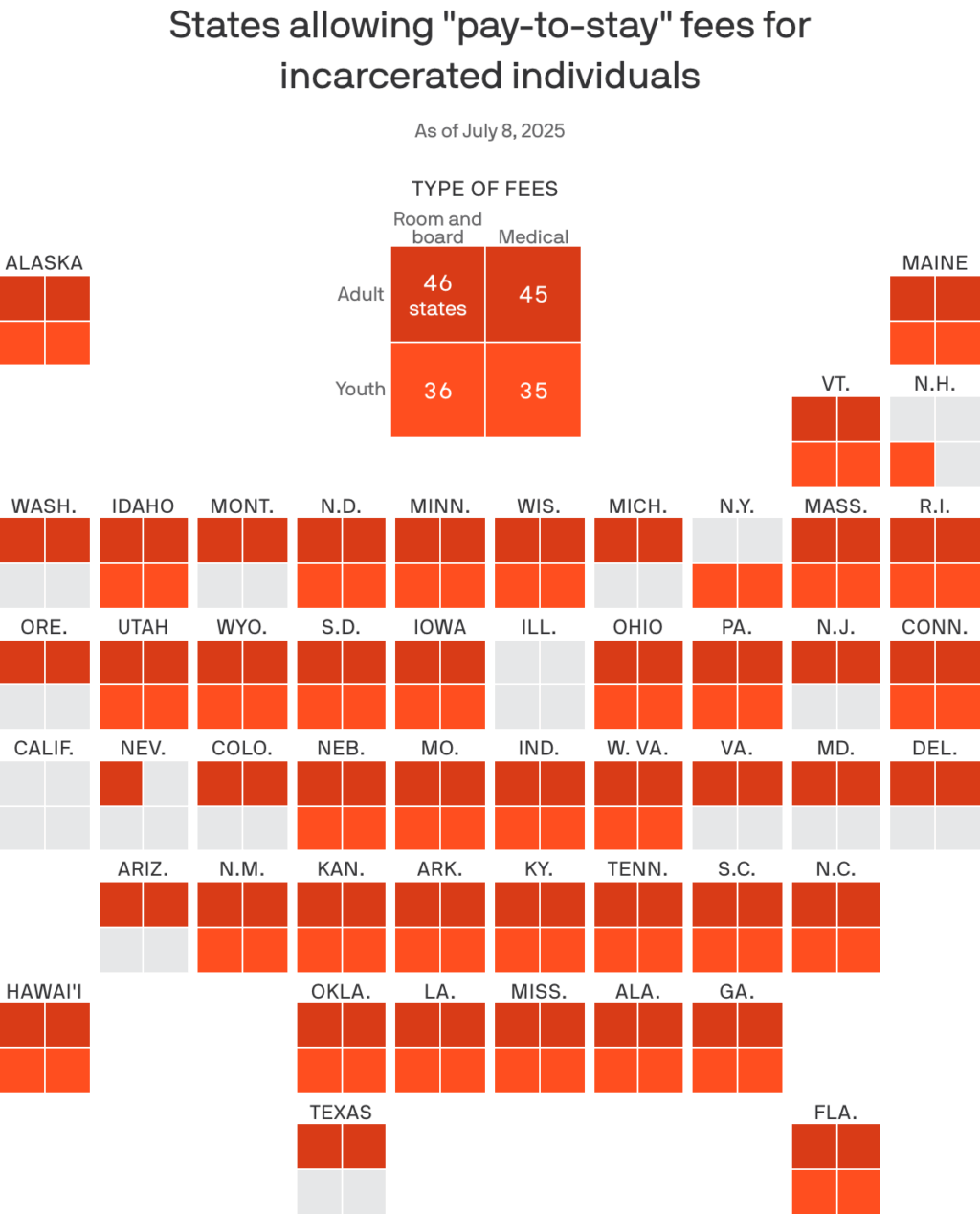
A recent review conducted by Axios reveals that nearly all U.S. states permit jails and prisons to levy fees on incarcerated individuals for their own incarceration, including medical expenses and “room and board” fees. This practice impacts a significant portion of the approximately 1.8 million people currently held in state prisons and local jails, exacerbating cycles of debt and poverty.
According to data from the advocacy group Campaign Zero, 48 states allow at least one category of “pay-to-stay” fees. Specifically, 42 states and the District of Columbia explicitly impose room and board fees on incarcerated adults, while 43 states allow medical fees for the same demographic. For incarcerated youths, 33 states and D.C. permit room and board fees, with 31 states allowing medical fees. The only states to entirely repeal these charges for all categories are California and Illinois.
The financial burden of these fees often contributes to an ongoing cycle of poverty that many individuals face after their release. Campaign Zero’s executive director, DeRay Mckesson, emphasized that many incarcerated individuals struggle to pay fees while in prison, leading to accumulating debts that persist post-release. Mckesson noted that medical co-pays, ranging from $4 to $15, for routine visits further strain their financial situation, as many earn around $0.50 an hour while incarcerated.
The ramifications of these financial policies are particularly concerning for communities of color, who are disproportionately represented in the criminal justice system. Mckesson pointed out that while the study did not delve into the racial impact of these fees, it is well-known that individuals of color are often the most affected.
New Mexico State Senator Antonio “Moe” Maestas, a Democrat and advocate for criminal justice reform, described the fees as a form of taxing criminal defendants. He stated, “It’s a way for governments to raise revenue without facing any political consequences.” Maestas expressed a lack of awareness regarding the persistence of fees in New Mexico and indicated plans to sponsor legislation aimed at eliminating many of them.
While some fees are designated for victim restitution and funding certain programs, critics argue that many individuals charged with “victimless” crimes, such as drug possession, are unfairly burdened by these costs. Dylan Hayre, an advocate with the Fines and Fees Justice Center, condemned the practice as “financial exploitation disguised as justice.” He stated, “You’ve taken people at their most vulnerable and handed them a bill they can’t pay. That debt destabilizes lives and entire communities.”
Campaign Zero is actively campaigning for all states to abolish these fees and is planning visits to various states to advocate for change. As inflation continues to rise, the issue of financial burdens associated with incarceration remains critical, drawing attention to the need for reform in the criminal justice system.







